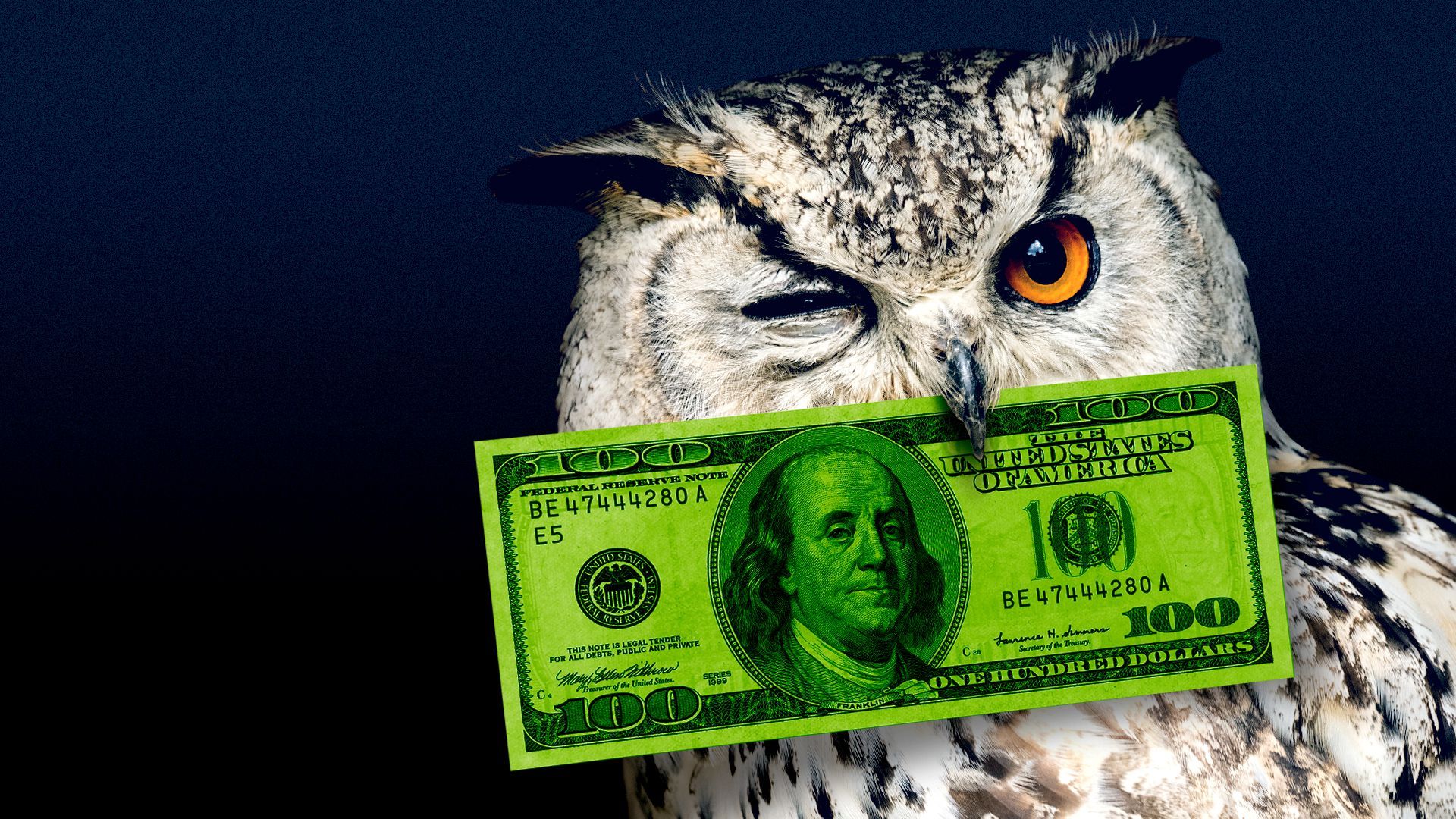| COVID didn't just upend where we work, but when we work. - Why it matters: That frees night owls from the cages of 9-to-5 societal rhythms.
What's happening: Research shows roughly half of people are night owls, dictated by genetics, not choice. Not having to go into the office allows them to work — and often sleep — later. - A staggering 76% of global companies are allowing hybrid work, meaning most employees can work from anywhere, at any time, on their own terms.
- The 9–to-5 workday is fading, with more people hopping on their computers at breakfast time and past happy hour, a Microsoft Work Trends report found.
The three of us are each early birds: Mike gets up at 2:30 a.m. (not a typo), Jim at 4:30 a.m. and Erica at 5 a.m. So we're in bed by 9ish. - Erica switched to an early, consistent wake-up time mid-pandemic.
- She saw immediate benefits to her physical health, with more time to exercise ... work, with hours of uninterrupted focus before the world logs on ... and mental health, since rhythm and routine kill anxiety.
But for the majority of adults, natural bedtime is after midnight, the National Institutes of Health says. - "Each of us has a personalized rhythm known as a chronotype — an internal timer that governs when we naturally fall asleep and when we are most alert," Emily Laber-Warren, a longtime science journalist, writes in a New York Times op-ed.
Zoom out: You have 351 genes, expressed in your brain, your retinas and beyond, that control when you feel sleepy and when you're alert, per a study published in Nature Communications. Enter night owls: - Alphabet/Google CEO Sundar Pichai told The Wall Street Journal he gets a second wind around 9 p.m. and is most productive after 10. He's still up early enough — between 6:30 a.m. and 7:45 a.m. But he saves the morning for reflection.
- Prolific author Michael Lewis says his ideal writing hours are from 7 p.m. to 4 a.m. It's all about the peace and quiet, he told Robert Boynton in his 2005 book, "The New New Journalism."
- Singer Christina Aguilera says: "If it were up to me, my favorite time to work would be between 3 to 4 a.m."
The bottom line: One of the best ways to improve your life and work is to get in tune with your internal clock. And now you can live by it. Share this story. | 





No comments:
Post a Comment